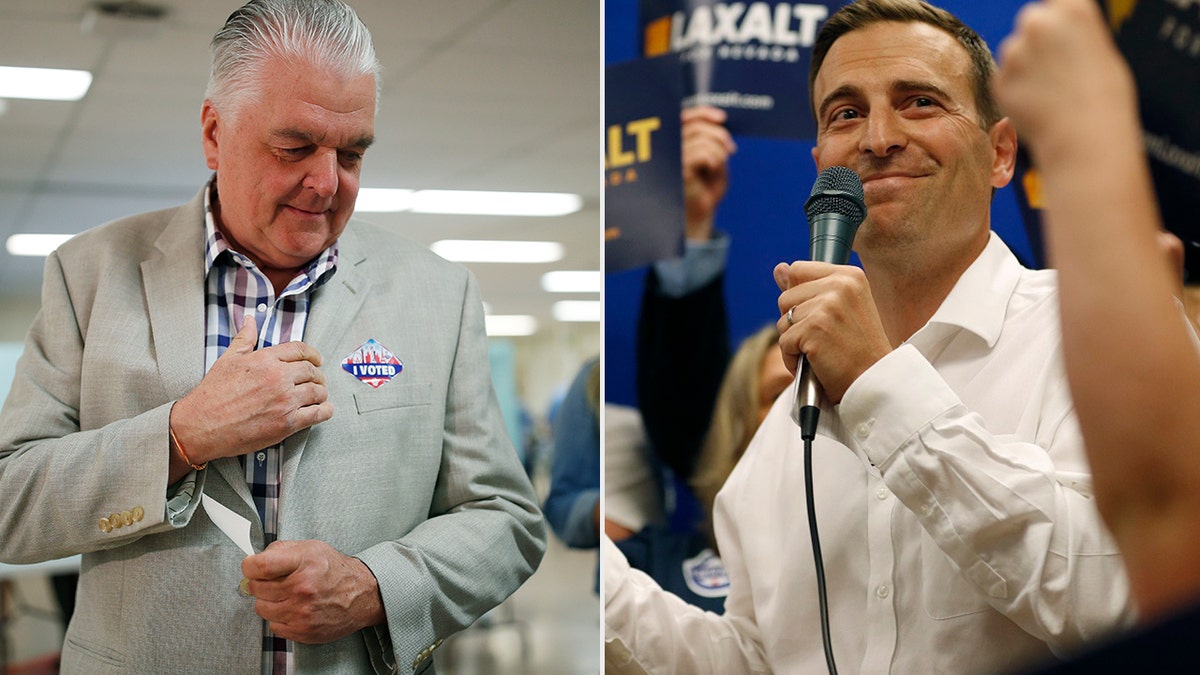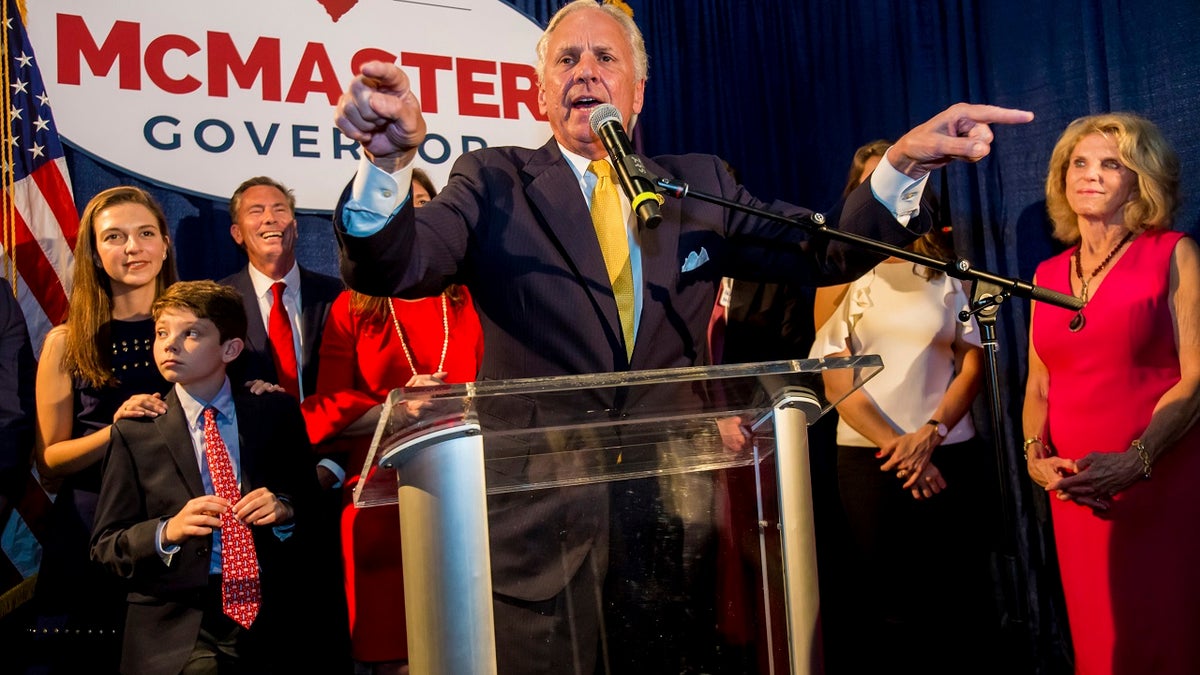
Republican state Attorney General Adam Laxalt and Democrat Steve Sisolak won their party's nomination on Tuesday to earn a spot on the ballot in November in Nevada's governor race. (AP)
Republican state Attorney General Adam Laxalt will face Democrat Steve Sisolak in November's election to replace Nevada's term-limited Gov. Brian Sandoval.
The 39-year-old Laxalt defeated state Treasurer Dan Schwartz along with a handful of other lesser-known candidates to secure the GOP nomination Tuesday, while Sisolak edged out Chris Giunchigliani to win the Democratic primary.
Laxalt is a former lieutenant in the U.S. Navy who has served as the state's chief prosecutor since 2015. He supported Donald Trump in the 2016 presidential election.
Sisolak, a Nevada politician backed by former U.S. Sen. Harry Reid, emerged the victor out of a six-way Democratic contest for a shot to become the first Democratic governor of Nevada in two decades.
The Democratic nominee, who has pledged to stand up to Trump and the National Rifle Association, was in a tough battle with Giunchigliani who painted him as being too moderate.
Giunchigliani also knocked him for receiving an "A-" rating from the NRA in 2012.
The Democratic race was charged with claims by a group supporting Sisolak that Giunchigliani was soft on sexual predators while she was an assemblywoman.
In response, Giunchigliani released an ad detailing her own experience as a victim of sexual abuse at age 8.

South Carolina Gov. Henry McMaster is seeking election to a first full term. (AP)
SOUTH CAROLINA
Meanwhile in South Carolina, Gov. Henry McMaster was projected to face a runoff vote in Tuesday's Republican gubernatorial primary, despite the endorsement of President Trump.
With 84 percent of the precincts reporting, McMaster had 45 percent of the vote, compared to 25 percent for businessman John Warren and 22 percent for attorney Catherine Templeton.
Those results mean McMaster will meet Warren, a Marine Corps veteran who contributed more than $3 million to his own campaign, in the runoff June 26.
On the Democratic side, longtime state Rep. James Smith was projected to easily defeat attorney Marguerite Willis and consultant Phil Noble. Smith, a 22-year veteran of the South Carolina legislature, had led his rivals in fundraising, but recent polling showed many voters had yet to make up their minds.
McMaster is seeking his first full term after succeeding Nikki Haley, whom Trump nominated to be U.S. ambassador to the United Nations. As lieutenant governor in 2016, McMaster was the first statewide elected official to announce his support for Trump ahead of South Carolina's early presidential primary (Haley endorsed U.S. Sen. Marco Rubio of Florida).
Trump returned the favor over the weekend, tweeting that McMaster had his "full endorsement."
For the past year and a half, McMaster been able to develop the mantle of an incumbent, tallying up economic-development announcements and championing issues aligned with the president's priorities, such as clamping down on "sanctuary cities" and restricting funding for groups affiliated with abortions. South Carolina has no "sanctuary cities."
But Warren was able to position himself as an outsider, banking on voters' desire to elect political newcomers.
South Carolina was one of three states holding gubernatorial primaries Tuesday night, along with Maine and Nevada. Maine's primary saw no fewer than 11 candidates -- four Republicans and seven Democrats -- battling for the right to succeed term-limited Gov. Paul LePage.
Maine's gubernatorial election was notable for the debut of ranked-choice voting, in which voters ordered their preferred candidates from first to last. If no candidate was able to garner a majority of first-choice votes, ballots would be shipped to the state capital in Augusta so election officials could winnow down the field next week.
Republican businessman Shawn Moody beat out GOP rival, state Sen. Garrett Mason on Tuesday to win the primary with a majority of the vote – meaning no further rounds of voting are needed. No clear winner has emerged out of the Democratic party, which would lead to additional rounds of voting if that result stays true after all the votes are counted.
State Attorney General Janet Mills (33 percent) was leading attorney Adam Cote (28 percent), but neither were close to the 50 percent needed to be declared a winner in the Democratic contest.
Currently, the ranked system -- described by LePage on Tuesday as the "most horrific thing in the word" -- is used only in statewide primaries. But Mainers were also voting Tuesday on whether to use the system in November's federal elections.
Fox News' Jonathan Hunt and the Associated Press contributed to this report.




















